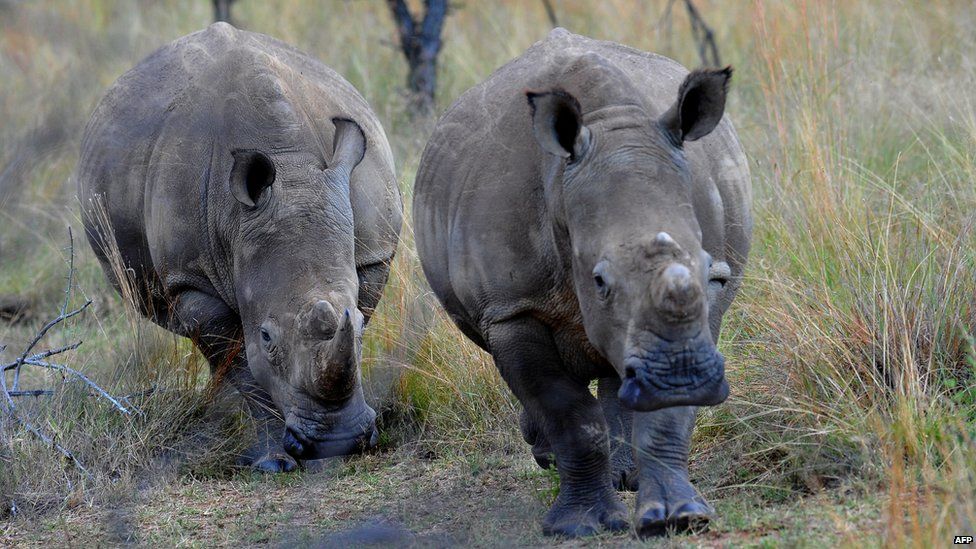South Africa lifts ban on domestic rhino horn trade
- Published

A South Africa court has lifted a ban on the domestic trade in rhino horns in a case brought by two game farm breeders.
It overturns a moratorium on the trade imposed by the government in 2009 to address rhino poaching.
One of the breeders, John Hume, blamed a sharp increase in rhino poaching on the ban.
Last year, a record 1,215 rhinos were killed in South Africa, where 80% of the world's rhino population lives.
The court heard that rhino horns sells for $65,000 (£43,000) per kg on the Asian black market where it is believed to have medicinal properties.
Mr Hume brought the case along with a colleague Johan Kruger, arguing that it was their constitutional right as breeders to sell rhino horns.
He farms in the area south of the Kruger National Park and is the largest rhino farmer in the world.
He had argued that if the ban was not lifted he would have been forced to dispose of his 1,200-strong herd as it cost him 5m rand ($351,000; £233,000) a month to preserve it.
In his ruling Judge Francis Legodi said it could not be denied that the ban was linked to a surge in demand.
The lifting of the ban comes ahead of a meeting in Johannesburg next year of the Convention on International Trade in Endangered Species of Wild Fauna and Flora (Cites), which is expected to discuss lifting the global ban.
The government says it has not yet decided whether to appeal the decision.
- Published21 July 2014
- Published9 February 2014
- Published30 October 2011